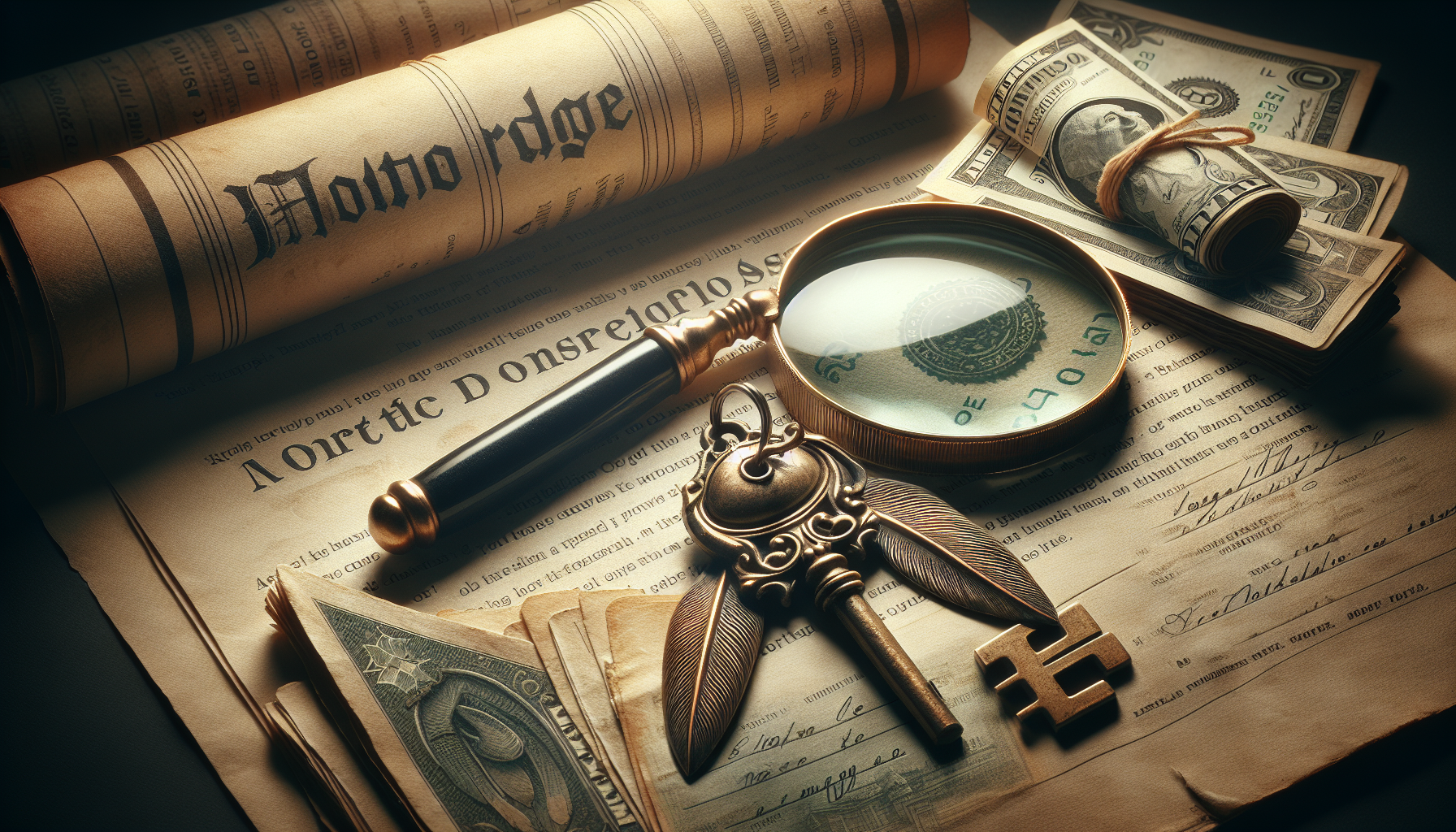
How Do I Get My Title After Paying Off My Mortgage? | Steps to Obtain Deed
Paying off your mortgage is a significant milestone, bringing a sense of accomplishment and financial freedom. However, to fully own your home, you need to obtain the deed of reconveyance, which officially transfers the property title from your lender back to you. This article will guide you through the process of getting your title after paying off your mortgage.
Understanding the Deed of Reconveyance
What is a Deed of Reconveyance?
A deed of reconveyance is a legal document that transfers the title to your property from your mortgage lender back to you after you’ve repaid the loan in full. This document signifies that you have fulfilled your mortgage obligations and that the lender no longer has any claim on your property.
The deed of reconveyance is typically created by the trustee, who is often a title company or an attorney. Once the document is prepared, it is sent to the county recorder’s office to be officially recorded, making it a part of the public record.
Alternate Names for Deed of Reconveyance
The deed of reconveyance may also be referred to as a mortgage satisfaction or a full reconveyance, depending on the state you live in. For example, in California, the document is known as a “full reconveyance form.”
Regardless of the terminology used, the purpose of the document remains the same: to confirm that you have fully repaid your mortgage and that the lender’s lien on your property has been removed, granting you clear title to your home.
The Mortgage Payoff Process
Obtaining a Payoff Quote
Before making your final mortgage payment, you’ll need to request a payoff quote from your loan servicer. The payoff quote will include the remaining principal balance, accrued interest, and any fees associated with closing out your loan.
It’s essential to request the payoff quote a few days before you plan to make your final payment, as the amount due may change slightly due to daily interest accrual.
Making the Final Mortgage Payment
Once you have the payoff quote, you can proceed with making your final mortgage payment. Be sure to follow the instructions provided by your loan servicer, as they may have specific requirements for submitting the payment, such as using a certified check or providing additional documentation.
After your final payment is processed, your mortgage will be considered paid off, and the lender will begin the process of preparing and recording the deed of reconveyance.
Proof of Ownership Documents
In addition to the deed of reconveyance, there are several other documents that serve as proof of ownership after paying off your mortgage:
- Promissory note: The original document you signed when taking out the mortgage, promising to repay the loan.
- Deed of trust or mortgage deed: The document that secured the mortgage lien on your property.
- Certificate of satisfaction: A document indicating that the mortgage has been paid in full and the lien has been released.
- Final mortgage statement: A statement from your lender showing a zero balance on your mortgage account.
- Loan payoff letter: A letter from your lender confirming that your mortgage has been paid off.
Keep these documents in a safe place, as they serve as important records of your mortgage payoff and ownership of your home.
Post-Mortgage Payoff Tasks
Checking Your Credit Report
After paying off your mortgage, it’s a good idea to check your credit report to ensure that your mortgage account is reported as “paid off” or “closed.” This positive information can help boost your credit score and demonstrate your creditworthiness to potential lenders in the future.
Handling Escrow Refunds
If you had an escrow account associated with your mortgage for property taxes and insurance payments, you may be entitled to a refund of any remaining balance. Your loan servicer will typically send you a refund check within 30 days of your mortgage payoff.
Notifying Tax Authorities and Insurance Providers
Once your mortgage is paid off, it’s your responsibility to notify your local tax collector and insurance company that you will be directly handling your property tax and homeowners insurance payments going forward. You may also want to consider updating your title insurance policy to reflect your sole ownership of the property.
Keeping Important Documents
Be sure to keep all important documents related to your mortgage payoff, including the HUD-1 settlement statement or closing disclosure, as well as any correspondence with your lender. These documents may be needed for tax purposes or future reference.
Financial Opportunities After Mortgage Payoff
With your mortgage paid off, you may find yourself with additional financial flexibility. Some options to consider include:
- Taking out a home equity loan or line of credit for home improvements or other expenses
- Investing the money you previously allocated to mortgage payments into a retirement account, such as an IRA
- Consulting with a financial planner to discuss how to best allocate your newfound funds to meet your long-term financial goals
Paying off your mortgage is a significant achievement that opens up new financial opportunities. By understanding the process of obtaining your deed of reconveyance and taking care of post-mortgage payoff tasks, you can confidently move forward as the sole owner of your home.
See also:
- When Do You Stop Paying Mortgage When Selling a House?
- Who Has the Deed to My House If I Have a Mortgage
- What Happens When You Have Quit Claim Deed, But Still On Mortgage – Explained
- What Are My Rights If My Name Is On a Deed But Not the Mortgage?
- What Is A Mortgage Note?
